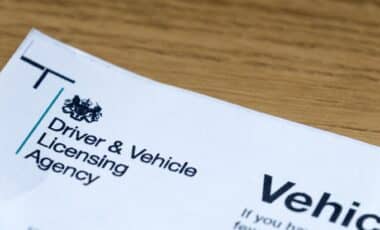The UK’s Blue Badge scheme, which offers parking concessions for people with severe mobility issues, is facing scrutiny due to its lengthy application and renewal process.
Recent debates in Parliament have highlighted the need for urgent reforms to accommodate those suffering from fluctuating or temporary mobility issues, particularly patients undergoing cancer treatment.
With concerns rising over the bureaucratic hurdles Blue Badge holders must face, the Department for Transport (DfT) has responded by considering changes to the system.
Proposals include clearer guidance for local authorities and adjustments to the application process, ensuring that vulnerable individuals receive the support they need in a timely manner.
MPs Call for Urgent Reform of the Blue Badge Scheme
During a recent Westminster Hall debate, Members of Parliament (MPs) raised serious concerns regarding the delays and rigidity of the current Blue Badge application system. Helen Grant, a Conservative MP, highlighted how individuals suffering from illnesses such as cancer could be disproportionately affected by the scheme’s rigid criteria.
Cancer treatment, which often includes chemotherapy and surgery, can lead to significant, temporary mobility issues. According to Grant, the side effects of these treatments, such as extreme fatigue and pain, can last longer than the typical three-year duration of a Blue Badge.
Yet, the current system requires patients to reapply for a new badge after this period, even if they are still enduring the debilitating effects of their illness.
“Indeed, under the Equality Act 2010, the Government rightly recognise cancer as a disability from the point of diagnosis for the remainder of a person’s life.” Grant said.
In response to these concerns, Lilian Greenwood, Parliamentary Under-Secretary of State for the Department for Transport, acknowledged the need for structural change but cautioned that such reforms would require careful consideration.
Greenwood confirmed that officials would review current advice to local authorities and seek to provide more practical guidance on how to handle applications from people with fluctuating or temporary mobility issues.
Strain on the System and Calls for Simplification
The Blue Badge scheme is designed to help individuals with severe mobility issues park closer to their destinations, offering benefits such as free parking in designated spaces and on yellow lines for up to three hours. However, the process of applying for or renewing a badge has come under increasing criticism.
Many applicants report a lengthy, cumbersome process, which can take up to 15 weeks to complete. Additionally, those whose applications are rejected must wait six months before reapplying.
In response, the Department for Transport has introduced new measures to simplify the process. A model application form, along with accompanying guidance notes, has been developed to assist local authorities in determining eligibility.
According to Greenwood, the new measures aim to improve consistency and ensure a smoother experience for both applicants and local councils. The DfT is also working with digital service providers to enhance the online application system.









